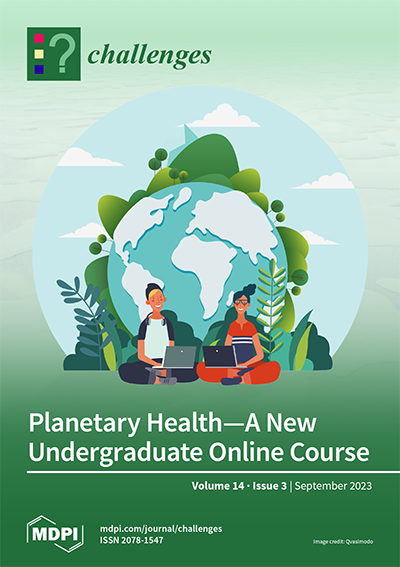“One thing I have been very interested in understanding is how students arrive and enroll in Planetary Health, and what their state of emotion is,” says Smith, who is also an associate professor of medical science. “What are their sentiments about the state of the world, and does that change by the end of the course?”
With the course centered on solutions-based thinking and student interaction and collaboration, she had a working hypothesis that this approach might ease eco-anxieties. Smith and Monteiro designed a way to assess learning outcomes and changes in students’ emotional states. For both the pre- and post-assessments, the 27 students enrolled in the winter 2022 and summer 2022 courses reflected on their personal feelings about the health of humans and Earth through open-ended prompts. Students enrolled in the course consisted of sophomores, juniors, and seniors in a variety of concentrations, including biology, economics, public health, history, and sociology, among others.
“Some people may decide to use a multiple-choice test, but for Planetary Health and the things [Smith] is teaching about, having an open response question was a better way to get a good reading on that initial baseline information,” Monteiro says.
The responses from the winter and summer groups were scored using a standardized rubric, and an analysis revealed some key themes among the responses. Pre-assessment sentiments were pessimistic, with the cohorts expressing themes that included helplessness, the politicization of climate change, and corporate responsibility. However, post-assessment responses consisted of cautionary optimism, individual agency, generational impacts, and the importance of creating and implementing solutions among other themes.
The researchers found that students broadened their knowledge of environmental changes beyond climate change, like how land use changes and invasive species contribute to health issues. Smith says there were “many great changes” that occurred over time, particularly the feeling of empowerment through solutions that we can do on an individual level. The diversity of interdisciplinary perspectives also contributed to positive outcomes.
“A lot of people, when they talk about how the world is changing and how it affects our health, will focus on climate change,” Smith says. “But there are so many different ways the environment is changing, from pollution, to land-use change, exotic species introductions and ocean acidification.”
Planetary health continues to gain traction in medical, graduate, and undergraduate curricula across higher education, and Smith says further integration and scaling up of such courses will be key in improving learning outcomes related to the environment and reaching more students.
“It’s my hope that I can do so with this course at Brown,” Smith says.
 As the world grapples with the realities of climate change, eco-anxieties about the planet’s future weigh heavily on young people across the globe. According to a study in the Lancet Planetary Health, three-quarters of young people say these concerns affect their daily lives.
As the world grapples with the realities of climate change, eco-anxieties about the planet’s future weigh heavily on young people across the globe. According to a study in the Lancet Planetary Health, three-quarters of young people say these concerns affect their daily lives.